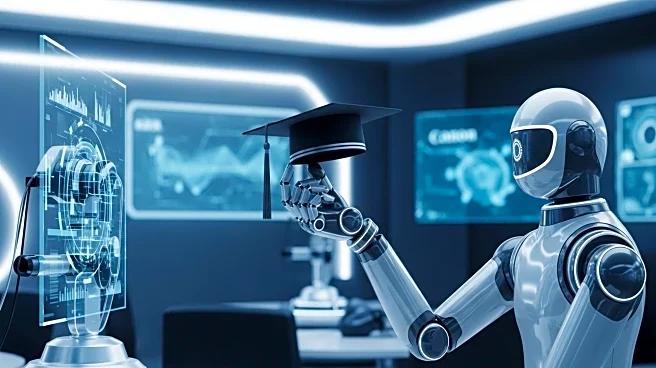What's Happening?
The integration of artificial intelligence in higher education is prompting faculty to reconsider their teaching methods and curriculum design. As AI becomes more prevalent, educators are exploring how it can support their work in perceiving, understanding, reasoning, executing, and creating. This shift is not about replacing human expertise but enhancing it. Faculty are using AI tools to analyze student submissions, identify patterns, and improve feedback mechanisms. The focus is on leveraging AI to expand the reach of human attention and improve educational outcomes, particularly for underrepresented groups.
Why It's Important?
The adoption of AI in education is significant as it offers the potential to improve student outcomes and streamline faculty workload. By utilizing AI, educators can better understand student needs and tailor their teaching strategies accordingly. This can lead to more personalized learning experiences and increased student engagement. Additionally, AI can assist in administrative tasks, freeing up faculty time for more critical educational activities. The broader impact includes potential improvements in institutional efficiency and the ability to address skill gaps in the workforce.
What's Next?
As AI continues to integrate into educational settings, institutions may need to invest in training faculty to effectively use these tools. This could involve developing new pedagogical strategies that incorporate AI and revising assessment methods to align with AI capabilities. Institutions might also explore partnerships with technology companies to further enhance AI applications in education. The ongoing challenge will be ensuring that AI complements rather than replaces the human elements of teaching.
Beyond the Headlines
The ethical implications of AI in education are profound, as educators must navigate issues of privacy, data security, and the potential for bias in AI algorithms. There is also a cultural shift as faculty adapt to new roles that emphasize collaboration with AI systems. Long-term, this could lead to a redefinition of educational practices and the role of educators in a technology-driven environment.









